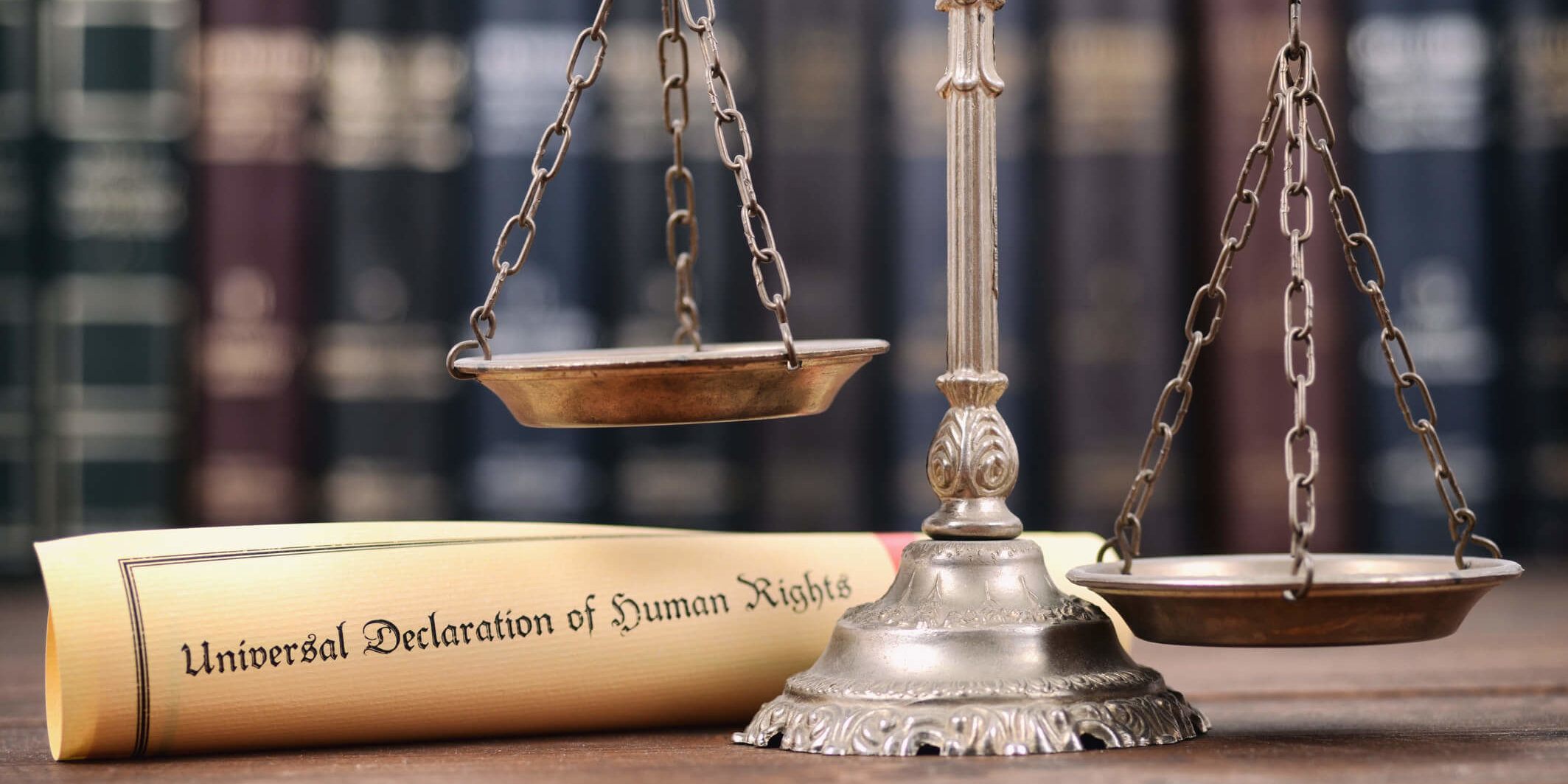This week, I stepped into a Global Perspectives class taught by Dr. Erin Cantos. I watched her help Ninth Grade students grapple with the topic of human rights. It was a great class. The students were interested and engaged. Dr. Cantos had high energy as she asked questions and guided the conversation.
The specific topic was studying the United Nations’ 1948 Universal Declaration of Human Rights (UDHR). In previous weeks, the class had examined the context of the founding of the United Nations. The U.N. was created, in short, because the world had experienced two devastating world wars, the Holocaust, and the rise of Soviet-style totalitarianism. In the wake of this history, world leaders were trying to create a world in which the bloody mistakes of the past might be avoided. That idealistic spirit pervaded post-war America. Indeed, the decision by CA trustee Francis Newton to pivot Colorado Academy away from its military school mission in the mid-1950s was influenced by the desire to create a better world and overcome the trauma of WWII and the Cold War.
During Cantos’ class, the students watched this video, commemorating the 70th anniversary of the UDHR, read aloud the UDHR as a whole class, and listened to this NPR story about why the UDHR is still resisted 70 years later. The students shared their reactions to the Universal Declaration of Human Rights. They noted the formal language and some of the more dated language. They observed that some rights were very concrete and definitive, yet other rights seemed more nuanced and open to interpretation.
Dr. Cantos guided her students with questions like, “Any predictions about how people around the world might respond to a document like this (past, present, or future)?” The UDHR proposed a set of “universal” human rights (created by a set of individuals from nine countries in 1946-48), but the students noted that not everyone around the world can actually agree that the rights included in the UDHR are indeed universal. This sometimes leads to certain levels of resistance to the UDHR. The students also observed that some of the words/rights can hold different meaning and importance for different people. CA students debated how it is important to respect the ideas and opinions of others, but what does one do when those ideas run contrary to the spirit of the declaration?
In the class, Dr. Cantos asked the students to prioritize the 14 rights outlined in the declaration. In doing this exercise, Dr. Cantos was trying to help the students understand that the ways in which rights are prioritized can depend on our political and moral conceptions of the world. This may well help explain why different governments (and individuals) prioritize rights differently. The class exercise underscored that point.
Students also started to identify and grapple with the fact that, even when the United States signed on to this declaration, segregation still existed in the United States, and many groups did not have full access to the rights put forth in the document. They also observed that many people in the world still do not have access to the rights listed under the UDHR—almost 75 years after the document’s adoption by the UN General Assembly.
As Dr. Cantos told me, “Universal human rights are essential to a healthy global society, but getting people to agree on a set of rights that can span national borders and cultures, let alone protect those rights, is a weighty task. As global citizens, we must be vigilant in recognizing not only what we would consider to be human rights, but the instances in which human rights are violated and call them out.”
I spotlight this class, but the reality is it could have been one of many classes at CA. I’m especially proud of the students and Dr. Cantos as they tackled a tough issue—a vision yet to be fulfilled. I wanted to share what I experienced with you because I think this class—and the student engagement—is reflective of what happens throughout CA classrooms on any given day. I encourage you to take five minutes and ask your children what they talked about in class this week. You, too, will likely engage in an unexpected conversation that has you reflecting on something you have given little thought to but, in discussing it, has you considering something new or perhaps a different thought or take on a topic that hasn’t come to mind for years.
